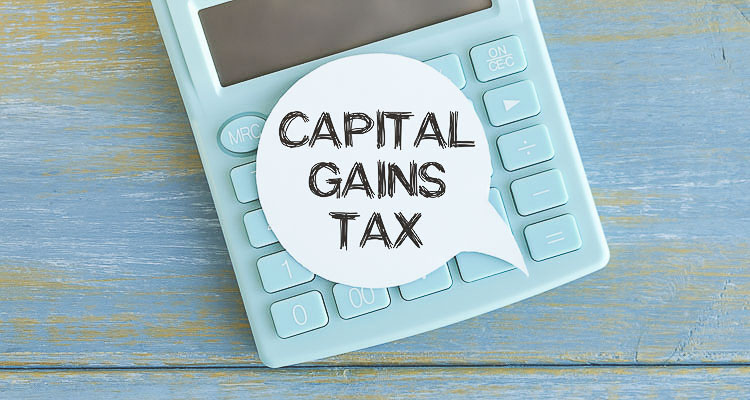
Jason Mercier of the Washington Policy Center shares an interview with former IRS attorney Steven Hankin
Jason Mercier
Washington Policy Center
Tax experts across the world will all tell you the same thing, a capital gains tax is an income tax, not an “excise tax” as claimed by Washington officials. We’ve heard this fact clearly from 49 state revenue departments, tax professors, academics, and the IRS. Those versed in tax law remain perplexed by Washington officials’ arguments that they alone have discovered how to tax capital gains income as an excise tax. One of those individuals is a former IRS attorney, Steven Hankin. Mr. Hankin recently contacted me to express his strong belief that this isn’t even a debatable topic – a capital gains tax is clearly an income tax.

Below is an interview with Mr. Hankin discussing his thoughts on Washington’s capital gains income tax. He wanted to make clear that he was not speaking on behalf of the IRS but instead these are his thoughts as a former IRS tax attorney. Here was our conversation:
Can you tell me about your tax background and former role at the IRS?
Mr. Hankin: “I was a managing attorney in the Office of Chief Counsel, IRS. I worked there for about thirty years. For the last roughly 18 years, I was in the Corporate Division of the Chief Counsel. As such, I worked on Subchapter C matters, which are corporate tax issues. Prior to that, I had worked on a wide variety of income tax issues. But I never had anything to do with excise taxes. I worked on private letter rulings, and I was involved with drafting regulations, and I provided technical tax advice to our attorneys in the field.”
In your opinion, is a capital gains tax an excise tax or an income tax?
Mr. Hankin: “I have always considered the capital gains tax to be an income tax, rather than an excise tax. The capital gains tax is a tax on the seller of property, that is being sold, while an excise tax is a tax on the transfer or use of the property. Income taxes (and other property taxes) are direct taxes that the US Constitution requires an apportionment. On the other hand, an excise tax is a tax on the transfer of the property rather than a tax on the seller’s ownership interest in the property. Excise taxes are indirect taxes, and the US Constitution only requires that such tax be applied uniformly throughout the country. Again, a capital gains tax is a tax on the ownership interest of the seller (with respect to property being sold).
A capital gains tax is arguably a tax on the property itself and as such, it is not a tax on the sale or use of something. By contrast, an excise tax is a tax on a transaction, (on the purchase or sale or use of something), instead of a tax on an ownership interest, An income tax and other property taxes are ‘direct taxes,’ while excise taxes are ‘indirect taxes.’ Clearly, income taxes, as direct taxes, cannot be considered as excise taxes. An income tax is not a tax on a transaction.”
Do you agree with Washington’s contention that a capital gains tax is a transactional tax like a Real Estate Excise Tax?
Mr. Hankin: “I disagree with the State of Washington’s contention that a capital gains tax is a transactional tax, akin to a real estate excise tax. As I previously stated, a capital gains tax is a tax on the seller’s ownership interest in the property rather than a tax on the transaction.”
Are you aware of any tax jurisdiction in the world outside of Washington state calling a capital gains tax an excise tax?
Mr. Hankin: “Although I have not researched it, I am not personally aware of any tax jurisdiction, outside of Washington State, that has ever treated a transaction, that because it is subject to the capital gains tax could be subjected to an excise tax transaction, simply on the basis that there is a transfer of property, involved. Certainly, a capital gains tax is not an excise tax.”
Anything else you’d like to add about capital gains taxes and the current litigation?
Mr. Hankin: “Washington State is misguided in believing that just because there is a transfer of property involved, it provides a basis for the imposition of an excise tax. Frankly, I am unable to see why this matter is considered to be controversial. That is, I see no reasonable argument for saying that a capital gains tax is not an income tax, and for that reason could be subject to an excise tax. I am somewhat dumbfounded as to why the State of Washington believes it has any reasonable chance of ever prevailing in this case.”
Thank you, Mr. Hankin for sharing your tax expertise with us.
The state Supreme Court will hear oral arguments on the capital gains income tax on January 26, 2023.
Jason Mercier is the director of the Center for Government Reform at the Washington Policy Center.
Also read:
- Opinion: Revolution or revival?Nancy Churchill argues that Washington state is ground zero for a Marxist-style revolution but says a cultural revival is possible through personal responsibility and the America First movement.
- Letter: ‘It’s said sarcasm is the lowest form of wit’Amboy resident Thomas Schenk criticizes Olympia’s use of “emergency clauses” and other legislative tactics that limit public participation.
- Letter: ‘We’re going to give them some money and a plane ticket, and then we’re going to work with them’Camas resident Anna Miller supports a new structured self-deportation policy, calling it a balanced approach to immigration and economic needs.
- Opinion: What the 2025 legislature tells us about why Washington’s government keeps failingTodd Myers of the Washington Policy Center argues that Washington’s government fails because it resists humility, experimentation, and accountability in its policymaking.
- Letter: Vancouver needs broader leadership than just a teacher’s lensVancouver resident Peter Bracchi urges Mayor Anne McEnerny-Ogle not to seek another term, calling for more diverse and inclusive leadership rooted in broader experiences.










